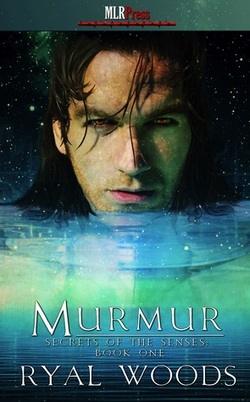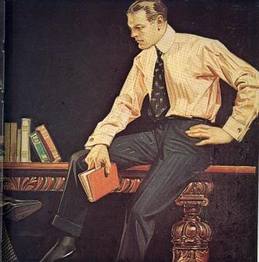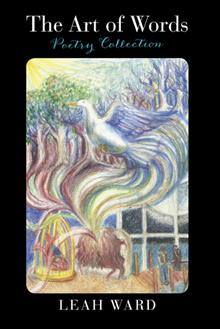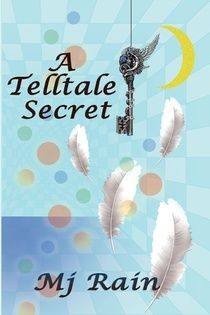

When I first started to get to know people involved in the genre, both writers and readers, I was surprised to find so many female fans of gay male fiction, but that was my own ignorance. I thought I was one of the few women in this little club, but it’s just not so. The reasons why women are so attracted to gay male storytelling has been debated up and down, and there have been some, in my opinion, big assumptions that it has to do with our collective penis envy or fantasies about “sandwich subterfuge” as I call it – putting ourselves between two hot guys. That’s really not the case. I think it has more to do with a sense of excitement for the growing empowerment of LGBT people. Women know what it is to be belittled and sexually smacked down, we know the patterns, the accusations of “flaunting our sexuality” which pretty much boils down to how dare we break free of the societal restraints that have been set up to contain us. And we also know what it is to be socially hijacked and sterilized, mocked, and distorted. We’re sympathetic, and supportive of others who are struggling to throw off those same things. I think there is also an element of interest in male/male relationships because of the physical equality – the ability to both enter and be entered. Whether or not men choose to practice that in their personal relationships, the choice is there. It’s enlightening and empowering to explore the dynamics of that type of relationship. And of course it’s just plain fun. Personally, I think it’s a genre that is sitting on the edge of huge growth and potential, and I’m excited to be both an observer and a participant.
Do you think that the popularity of fanfiction and ebook publishing has led to an LGBT fiction boom, particularly in LGBT romance? It seems like these books are quite difficult to find in your average bookshop.
I think fanfiction and epublishing have exploded many genres, not just LGBT fiction. Fantasy has experienced a surge, as well as young adult fiction. Genres that have been in the periphery of the publishing industry’s attentions have now grown to such an extent that they’re taking over pop culture. It’s amazing to watch. It’s the rise of “don’t tell me what I want, give me what I want” that is Internet culture in a nutshell. A wide variety of LGBT books are still difficult to find in traditional shops, and that has to change. It seems like all of the artistic industries are struggling to keep their footing in this huge onslaught of people going after what they want, instead of accepting what’s being divvied out to us. The music industry is struggling, the book industry, and the film industry is beginning to feel the effects, too. It’s sad to watch the demise of bricks-and-mortar bookshops, and I hope that when the dust begins to settle we’ll find the right balance between quantity, quality, variety, and availability to support many different vehicles of distribution.
Murmur, the first novel of your Secrets of the Senses series, was released in October 2013. What can you tell readers about it that isn't a spoiler?
What I’ve set out to do with this series is create an extraordinary relationship between my characters and their very ordinary endowments. We take for granted our five senses, but they are the keys to how we relate to everything and everyone. They’re tricky, too. Sometimes we make assumptions based on what our senses are telling us, and it’s limiting. My main character, Aonghas is gifted with enhanced senses. He is, by nature, a hedonist. He struggles between indulging himself, and putting his higher perception to real use. He’s as fallible as we all are, and he makes mistakes along the way. He’s lost his only guide, his mother, so he is alone in this knowledge, and forced to learn his lessons on his own. His relationships with two men help him to sort it all out and come to terms with who he is.
Murmur is steeped in Roman, Gallic and Hibernian culture. What kind of research did you do in preparation for writing the series, and how difficult was it to incorporate these different cultures into one narrative?
Oh, dear. This is where I admit that my research skills are not one of my best assets. I don’t like doing research, it gets in the way of my storytelling. The reason I chose to set Murmur in the time of Roman occupation of France and England is because I wanted to emphasize that feeling of cultural flux, the dynamics between conflicting cultures and the struggle to see the greater picture within that very disruptive period. It dovetails with my main character’s struggles to accept his strengths and his weaknesses, to adapt and adopt, and at the same time hold onto and nurture the things that make him unique. So my method is to go back and do a research retrofit – I wrote the story, and then I did factual cleanup. I also did as much as I could to avoid the need for it. For one thing, I set the story in Ireland, which in reality saw very little Roman activity. I made it an alternate universe to do with as I chose, instead of meticulously trying to incorporate historical facts. I’m very big on finding ways to work around being a stickler for accuracy, and using artistic license. Each book in the series jumps around in time and place – it’s the senses themselves that tie it together. And my five senses are sentient beings. They’ve evolved beyond being contained, into developing their powers and charting their own destinies.
Away from the cultural influences, Murmur has very unique, complex leads in Aonghas and Maon, and the relationship between them is captivating as Maon draws Aonghas out of his isolation. How would you best sum up their relationship?
I think Aonghas and Maon mirror in one another their own self-doubts and shortfalls. Their passion for one another is in the need to love and be loved without question. On the other hand, the relationship between Aonghas and Sòlas is based on openness and blind trust – baring themselves to one another and asking for acceptance in spite of the questions this kind of openness creates. Aonghas is searching for a middle ground, if such a thing exists. He’s learning to compromise what he can, and to share his most personal qualities without fear.
Finally, as it is LGBT month at I'm With Geek, what are your favourite LGBT reads?
I really love the classics. Death in Venice by Thomas Mann is a beautifully told story, it’s a very powerful encounter with life just when the main character is on shaky ground in his own existence. I just finished reading The Autobiography of Alice B. Toklas by Gertrude Stein – such a fun book! It’s written in the tone of Alice’s speech patterns, and it follows their lives from just before WWI to just after. Gertrude Stein was quite the character, she seemed to have this knack for getting anything she wanted with very little effort. Alice is drawn as a stoic sidekick, but in the narrative you see the dynamics of their relationship and why it was equal and so long lasting. I’ll also mention a book that has yet to be released, but I’ve read the manuscript, and fell in love with it. It’s An American Memory by George Seaton, and it will soon be released by Wilde City Press. It’s a collection of vignettes that tell the stories of gay men at the time of The Big Party during the 60s, 70s and early 80s, and beyond. I say vignettes instead of short stories because each is such a perfectly formed snapshot of a particular time, a place, a person, all brought together into a cohesive book of memories. The writing is beautiful, and perfectly transportive.
For more information on Ryal Woods, check out her website, or her Goodreads page.





 RSS Feed
RSS Feed
